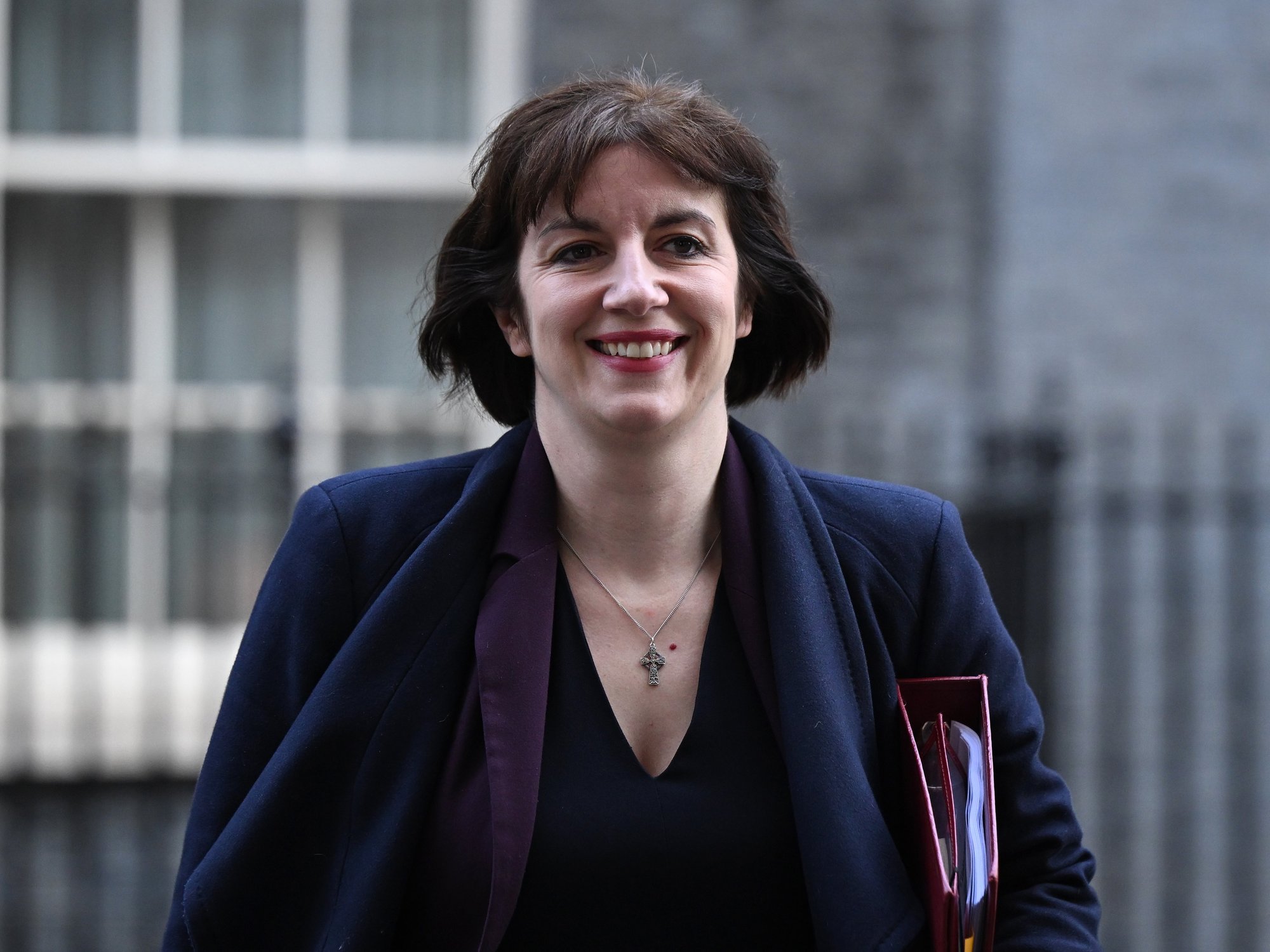Homeowners warned ‘second mortgage bombshell' could see average payments rise to £4,800 under Tories

Homeowners warned ‘second mortgage bombshell' could see average payments rise to £4,800
| GETTY
Rachel Reeves has claimed the Conservative manifesto contains £71billion of unfunded commitment which could result in a rise in mortgages over the next five years
Don't Miss
Most Read
Homeowners are warned that if the Conservatives get elected in the upcoming General Election, there could be a "second mortgage bombshell" on the way.
Britons could face £4,800 in extra mortgage payments over the five years they are elected.
Rishi Sunak announced a £17.2billion package of tax cuts, including a further 2p reduction in employees’ national insurance on Tuesday.
However, Reeves said Labour's analysis suggested the Tory plans required an extra £17.4billion of borrowing in 2029-30, and a total of £71billion over the whole five-year period.
The Shadow Chancellor has alleged that the Conservative manifesto contains £71billion of unfunded commitments and could result in “a second Tory mortgage bombshell” as the parties continue to clash over tax and spending.
If the Conservatives borrow this amount, it could result in the Bank of England putting up interest rates by 56 basis points.
 UK inflation has fallen to the lowest level in two years sparking homeowners to wonder what it could mean for mortgage rates | GETTY
UK inflation has fallen to the lowest level in two years sparking homeowners to wonder what it could mean for mortgage rates | GETTYThis means that someone with an 85 per cent mortgage on the average house in England risks facing £4,800 in extra mortgage payments over the five years if Conservatives are elected she explained.
Reeves told the central London presser: “The consequence of an increase in day-to-day borrowing to fund the commitments made in this manifesto would amount to a second Tory mortgage bombshell, because higher borrowing at this scale would force the Bank of England to increase interest rates.
“The result would be an increase in the average mortgage totalling £4,800 over the course of the parliament.”
Labour’s warning of a steep rise in mortgage costs appears to be the party’s counterpart to the Tories’ claim that a Government led by Sir Keir Starmer would hike taxes by £2,000 – a much-disputed figure that has been criticised by the UK statistics watchdog.
Labour’s analysis makes a series of assumptions to estimate the cost that might be attached to the Tory policies.
The Conservatives hit back by accusing the shadow chancellor of “confusing facts and fiction on numbers”.
A Conservative spokesman said: “Once again Reeves is confusing facts and fiction on numbers.
“Rachel Reeves’s chaotic and panicked dossier is full of complete nonsense and capped off with the extraordinary claim that it will cost the taxpayer £5.7billion to cut the civil service back to pandemic levels.”
Although Reeves's figures cannot be confirmed, mortgage rates in the UK have skyrocketed to new heights in recent months, according to new research conducted by Moneyfactscompare.
The finance experts' UK Mortgages Trends Treasury Report found that average interest rates on overall two and five-year deals increased, albeit modestly, by 0.02 per cent.
LATEST DEVELOPMENTS:
While this is slightly lower than the rates reported for December 2023, Britons coming off a five-year fixed rate mortgage looking for an equivalent deal face much higher rates; 2.65 per cent higher compared to June 2019.
Mortgage repayments have risen dramatically in recent years due to the Bank of England's decision to raise the country's base rate in an attempt to rein in inflation.
As a result, the central bank has increased and held interest rates at 5.25 per cent since August 2023 which has impacted borrowers, including homeowners and those in debt. However, the consumer price index (CPI) rate has eased to 2.3 per cent with analysts betting on a potential cut from the Bank in the latter half of this year.
Overall, the average two- and five-year fixed rates increased between the start of May and the start of June, to 5.93 per cent and 5.50 per cent, respectively.










